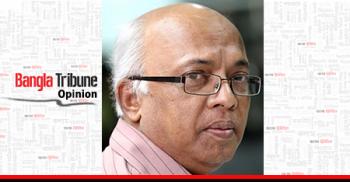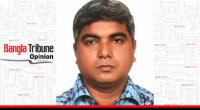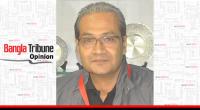 Pakistan’s army remains the pivot around which politics moves in Islamabad. Should one be surprised that these days the soldiers are courting Imran Khan? The former cricketer appears to have convinced himself that come July 25 he will be Pakistan’s new prime minister. Pakistan’s history, all the way from 1954, when General Ayub Khan first began toying with the idea of seizing power, and till now, is proof that the military has remained the one force which has dominated the country. It is a sad commentary on a country that its soldiers have, for more than half its independent existence, exercised brutal and unchallenged power. For the remaining half, it has breathed heavily down the necks of politicians who have tried to govern on their own.
Pakistan’s army remains the pivot around which politics moves in Islamabad. Should one be surprised that these days the soldiers are courting Imran Khan? The former cricketer appears to have convinced himself that come July 25 he will be Pakistan’s new prime minister. Pakistan’s history, all the way from 1954, when General Ayub Khan first began toying with the idea of seizing power, and till now, is proof that the military has remained the one force which has dominated the country. It is a sad commentary on a country that its soldiers have, for more than half its independent existence, exercised brutal and unchallenged power. For the remaining half, it has breathed heavily down the necks of politicians who have tried to govern on their own.
One would have thought the Pakistan army would go quietly into the sunset when 93,000 of its soldiers surrendered in Bangladesh in 1971. But that was not to be. Barely three years into that monumental defeat at the hands of the Mukti Bahini and the Indian army, Zulfikar Ali Bhutto and Aziz Ahmed were pleading with Bangladesh’s leaders for the 195 officers Dhaka meant to try for war crimes to be released. Their pleas were based on overwhelming fear: if the officers were tried by Bangladesh, the army in Islamabad would overthrow Pakistan’s first elected government in a fresh coup d’état. In the event, the Bhutto government did get to be ousted and by none other than Bhutto’s handpicked army chief Ziaul Haq in 1977.
The Bhutto case is a bizarre instance of how Pakistan’s army has throughout its history raised those it saw as its willing partners in political chicanery to the heights before dropping them to the ground with a thud. A very young and very brash Bhutto was appointed to the central cabinet once General Iskandar Mirza and General Ayub Khan staged their coup in early October 1958. Twenty days later, with Mirza pushed from power, Bhutto stayed on in the Ayub regime — till July 1966. Once it became clear that Sheikh Mujibur Rahman’s Awami League, having swept the general elections of December 1970, would take power in Islamabad, the army stepped in. Its weapon was Bhutto. The army found its ally in him. Together they not only repudiated the results of the election but also initiated the killing of Bengalis that would destroy Pakistan. In July 1977, the army removed Bhutto from power. In April 1979, it put an end to his life.
With General Zia in power, the army went looking for new civilians to train into being politicians. The soldiers zeroed in on a young businessman named Nawaz Sharif and manoeuvred him into political office as chief minister of Punjab. Zia was blown out of the sky in August 1988, but that did not stop his military successors from making sure, in 1990, that Sharif replaced the fiery Benazir Bhutto as prime minister. In October 1999, a new general with political ambitions, General Pervez Musharraf, came down from the skies, literally, to send Sharif packing in Pakistan’s fourth military take-over. But Sharif did come back, again through the blessings of the army. Today, at this point in time, he is out of favour again. The army is today enamoured of the rather naïve Imran Khan. Perhaps a time will come, assuming that Khan rides to power after July 25, when the soldiers will begin a new search for a new politician to do their bidding?
History is replete with instances of the sinister role the army has played in undermining democratic politics in Pakistan. Bangabandhu Sheikh Mujibur Rahman warned Zulfikar Ali Bhutto in the steamy days of March 1971 of the machinations the Pakistan army was engaged in. First the soldiers would destroy him, the future founder of Bangladesh, he told Bhutto, and then they would destroy the chairman of the Pakistan People’s Party.
Bhutto, already batting for the army, was not ready to consider the consequences. In faux lofty manner, he told Bangabandhu, “I would rather be destroyed by the army than by history.” The irony is not to be forgotten, all these decades after the battle for Bangladesh. A defeated Pakistan army could not keep Bangabandhu Sheikh Mujibur Rahman from returning to his country; a rejuvenated Pakistan army took Bhutto’s life. As for history, Bhutto does not quite have a respected perch in its cavernous halls.
Pakistan’s army, in that broad sense of the meaning, has never been out of power. The degree of adulation which vast numbers of Pakistan’s citizens shower on the men who have served — and serve —as chiefs of the army remains astounding. Hardly anything but praise for the military is heard in the media and in everyday conversation. Politicians remain in thrall or in genuflection to the army, a feature of life which dates back to the days of Ayub Khan. It matters little that Ayub Khan sowed the seeds of Pakistan’s destruction in his decade in power. General Yahya Khan, having presided over the genocide in Bangladesh, was never placed on trial for his role in the break-up of the country. General Ziaul Haq pushed Pakistan into jihadist Islam and Islamabad is yet paying for his sins. Pervez Musharraf should have been put away, but that is not happening. He is a candidate at the July parliamentary elections.
More than a decade ago, a leftwing Pakistani politician lamented to yours truly in Islamabad: “We rejoice in your triumphant struggle for Bangladesh’s independence. But we are also saddened by the fact that these days we do not have in our midst any more forceful political leaders like Sheikh Mujibur Rahman and Moulana Bhashani, for they were men who gave Pakistan’s army the shivers in pre-1971 Pakistan. Men of their calibre are not to be found in today’s Pakistan.”
Syed Badrul Ahsan is the Editor-in-Charge at The Asian Age.


